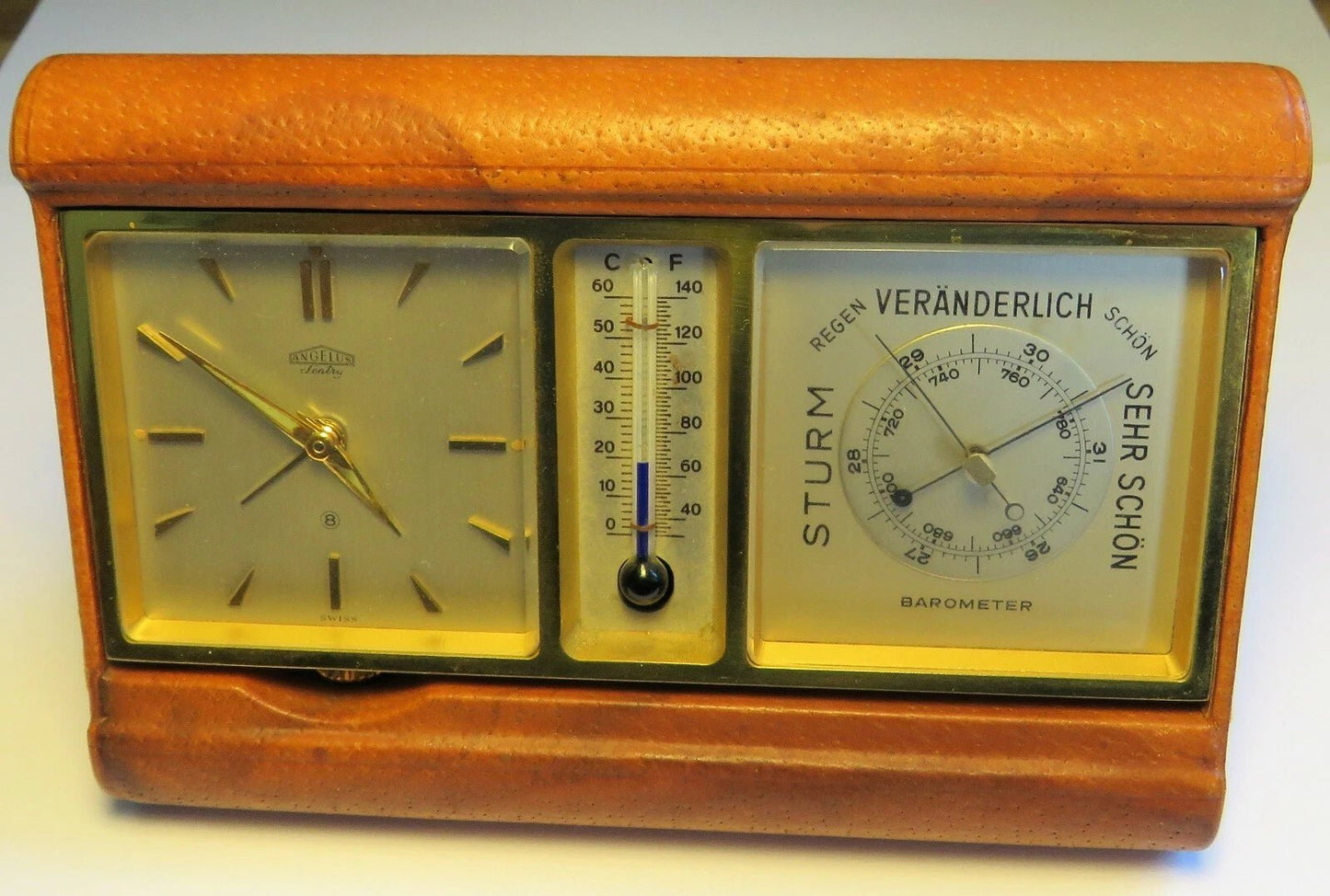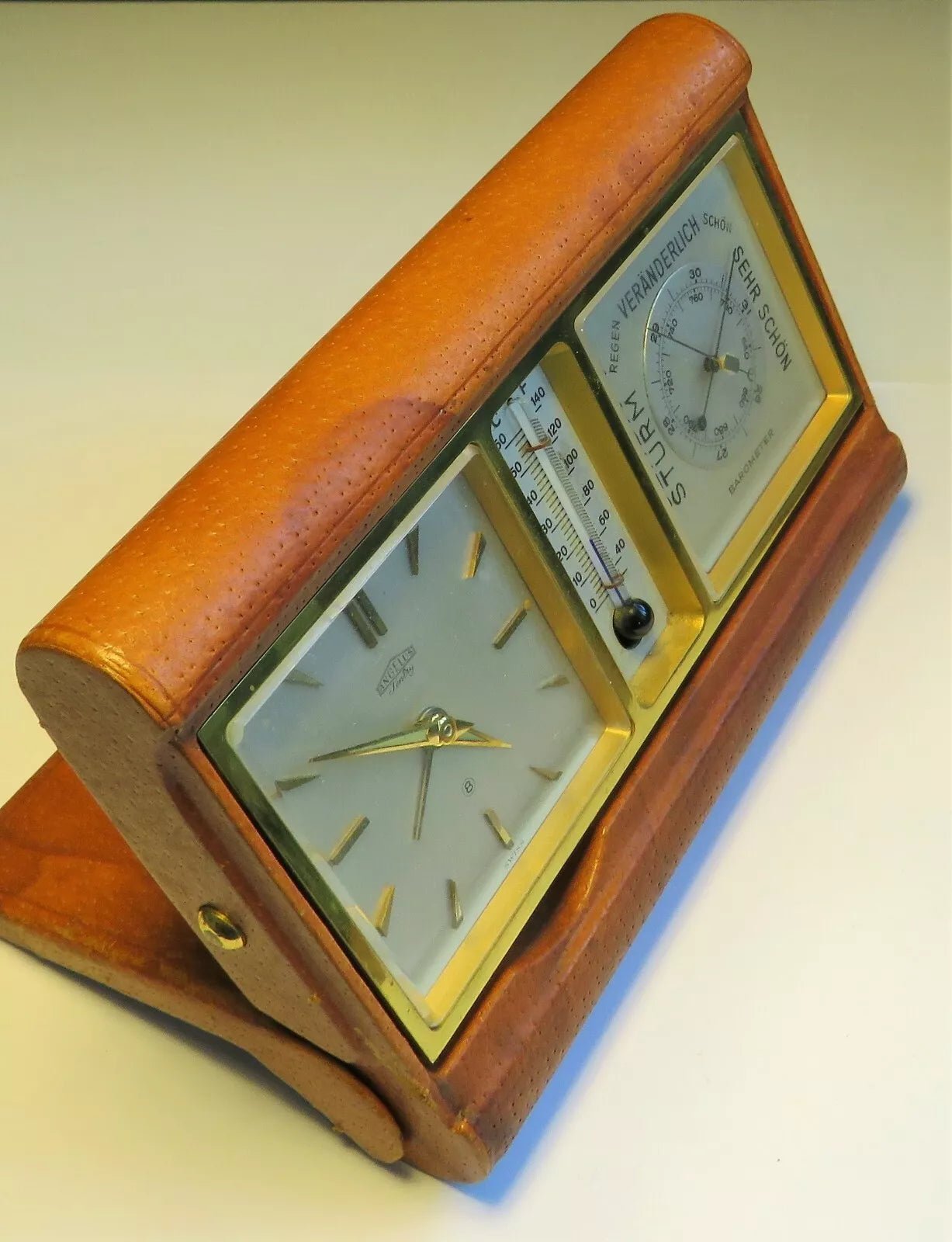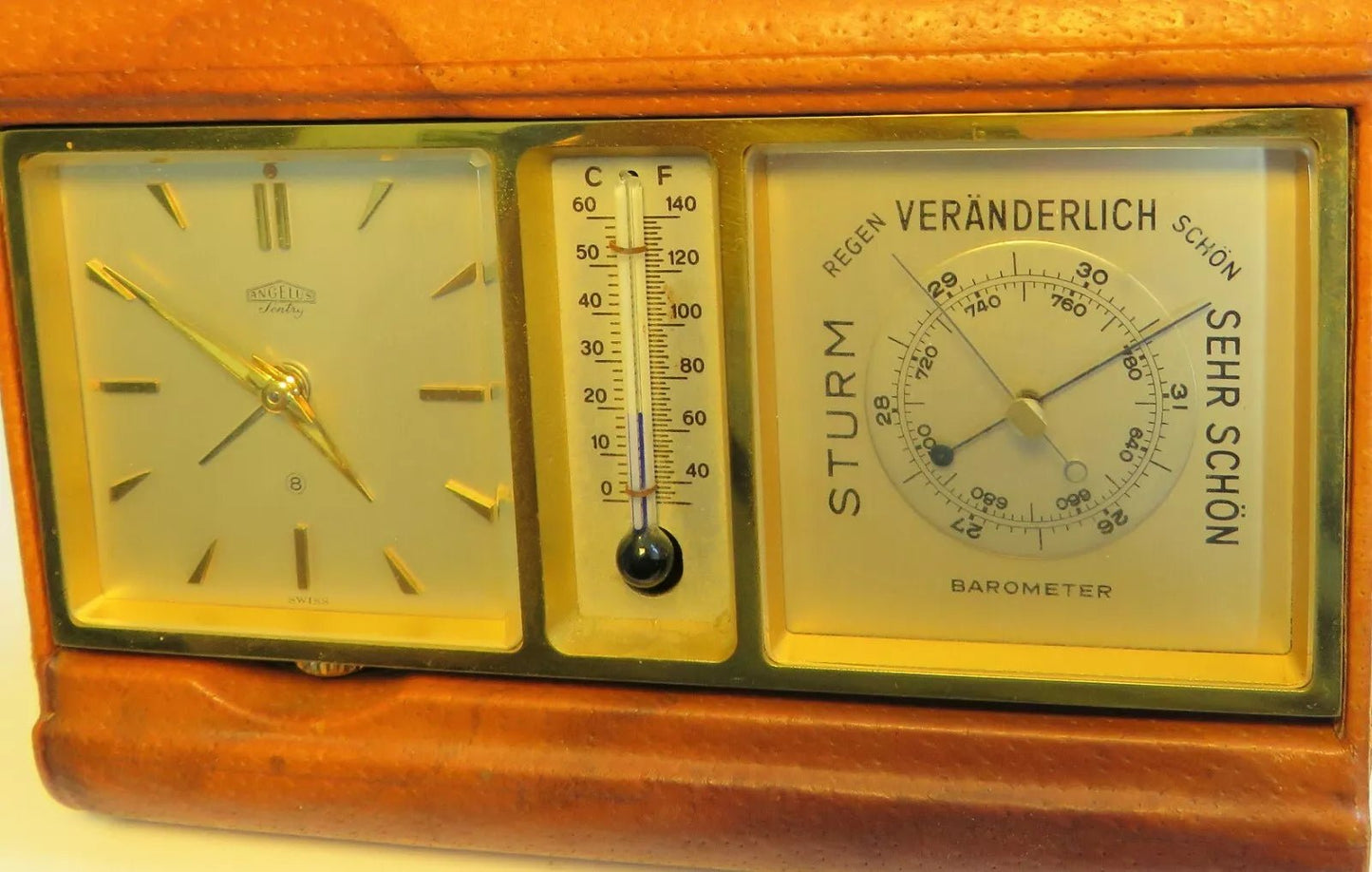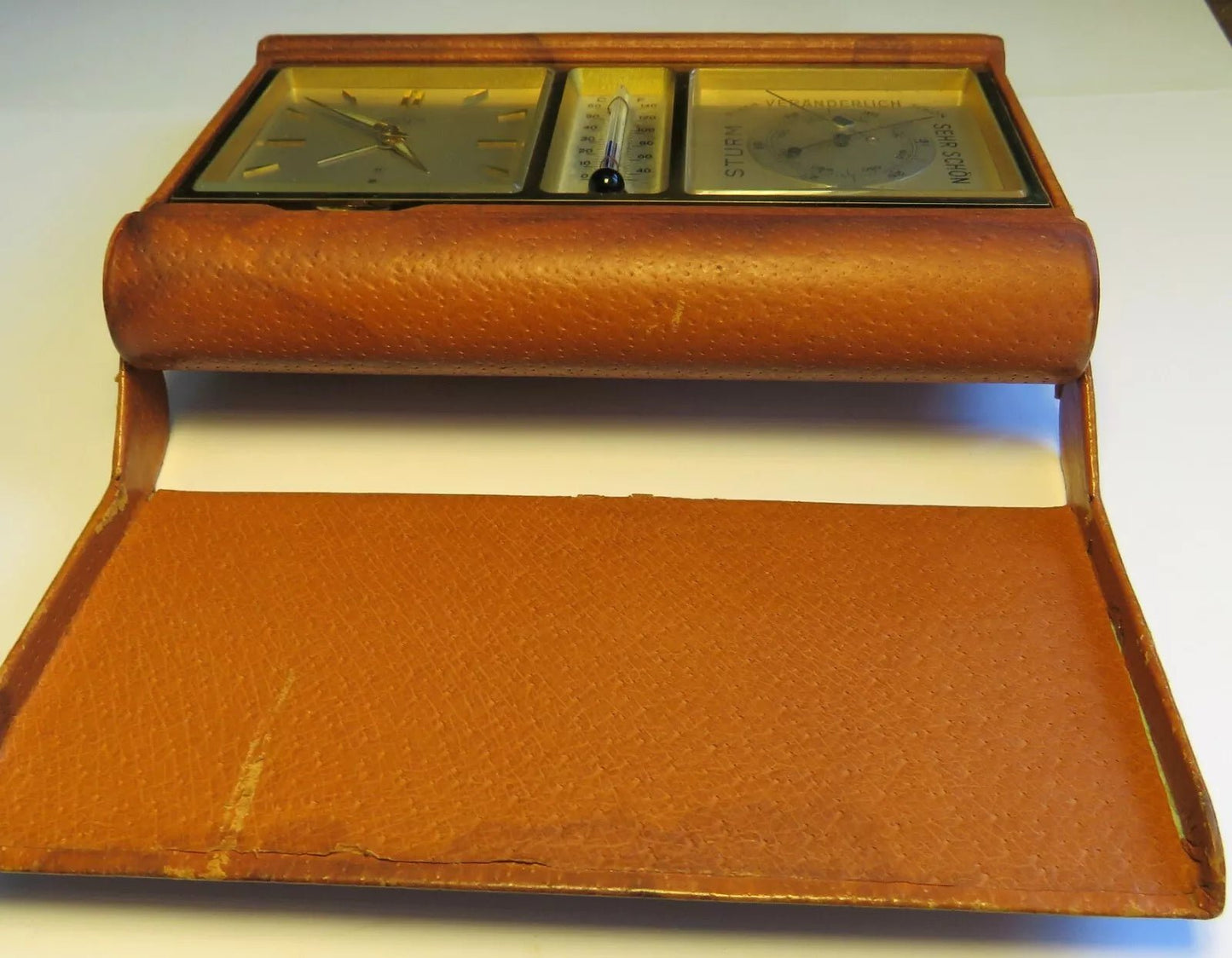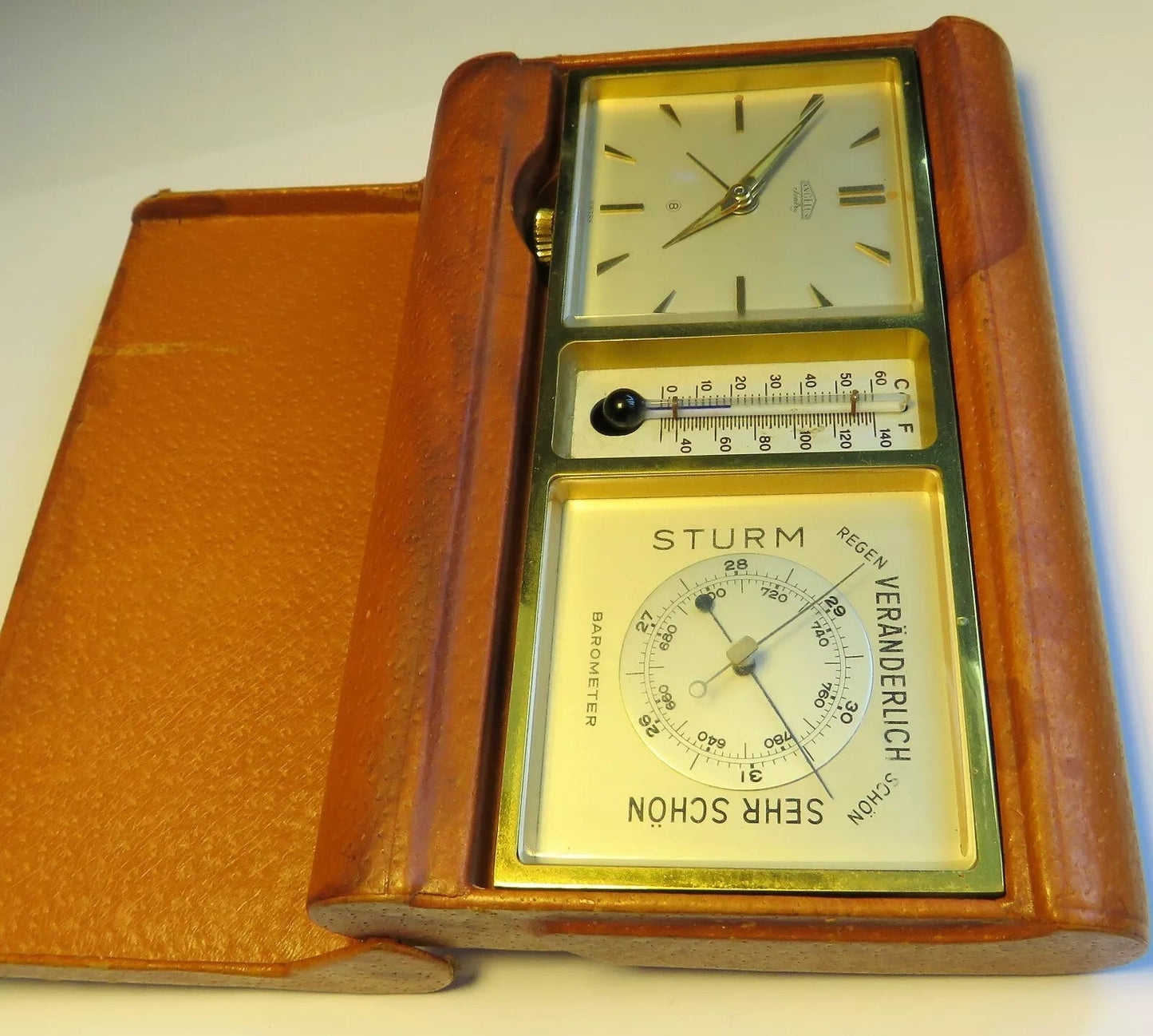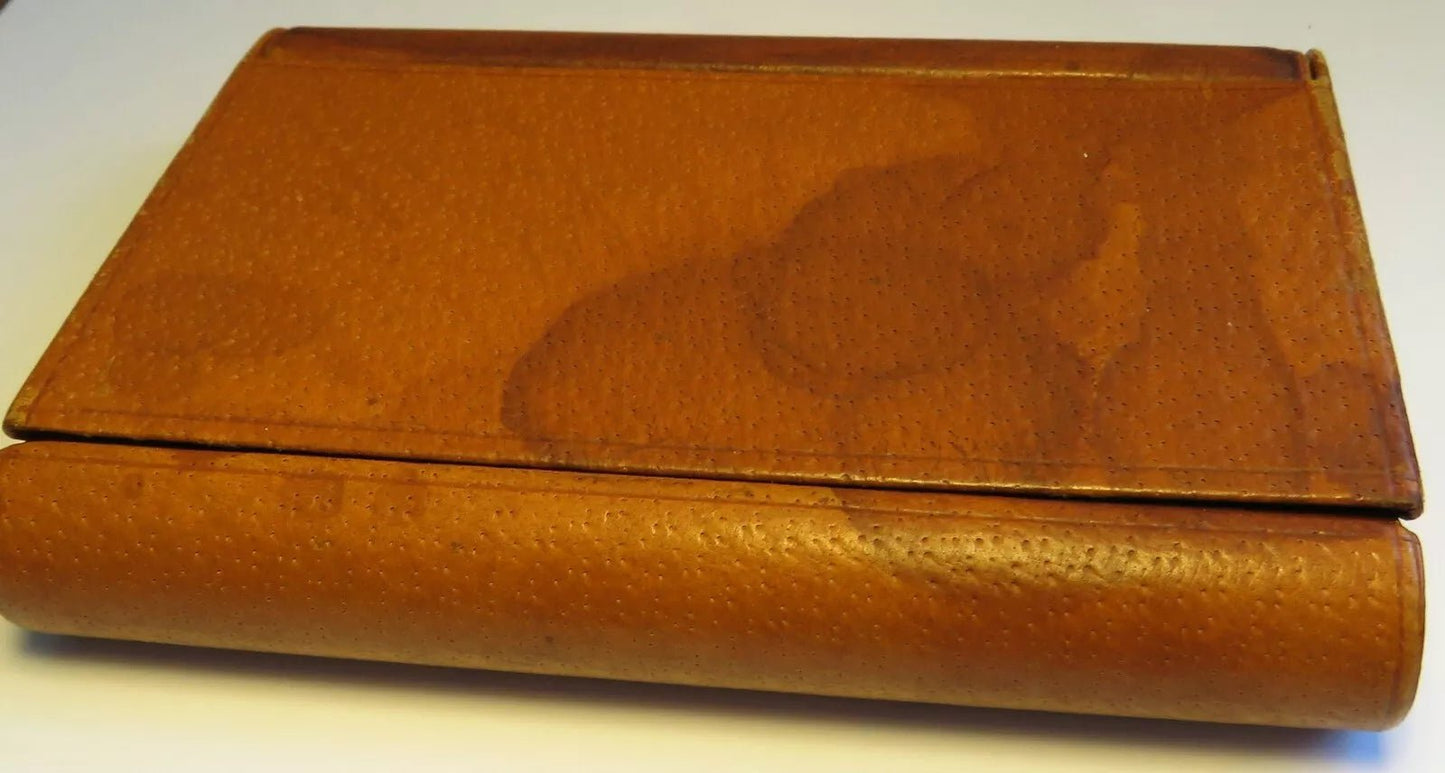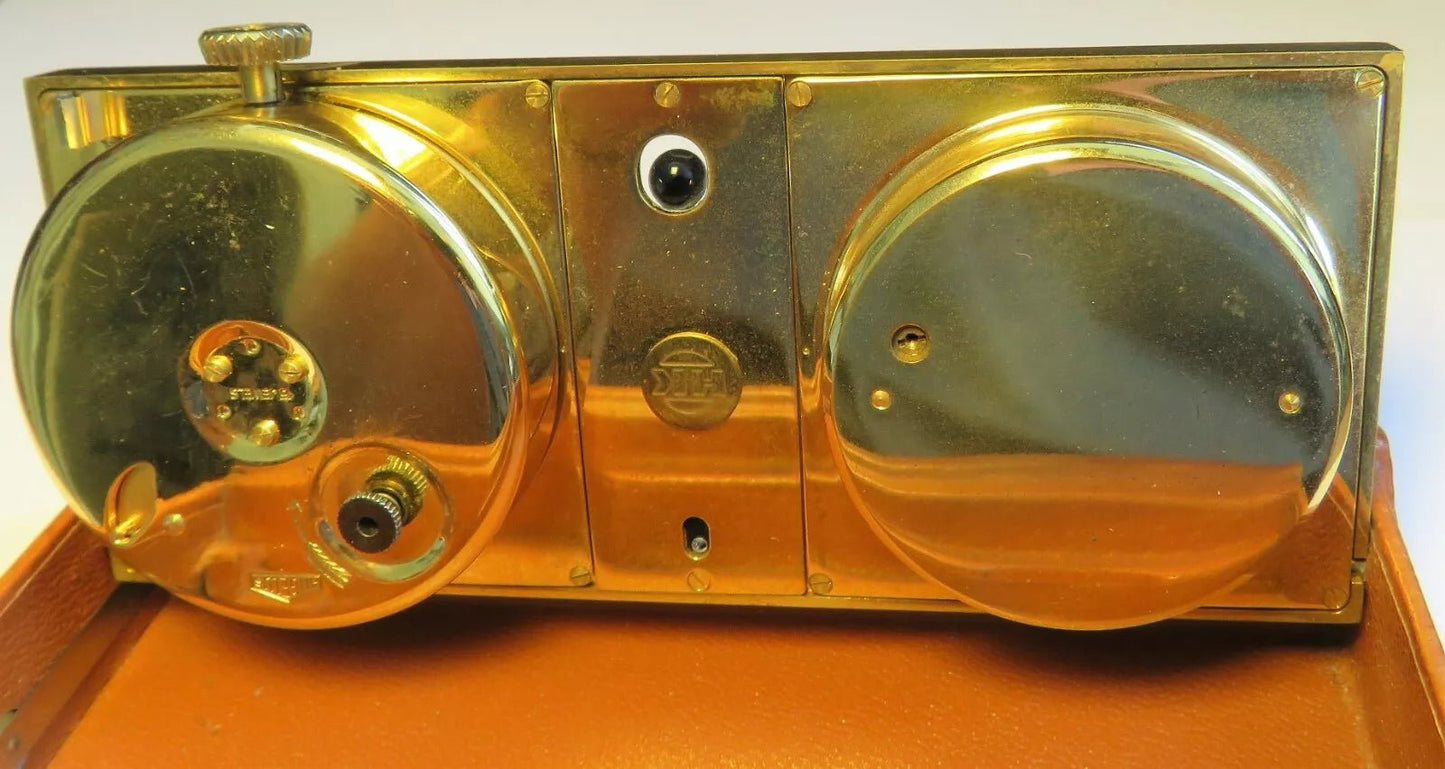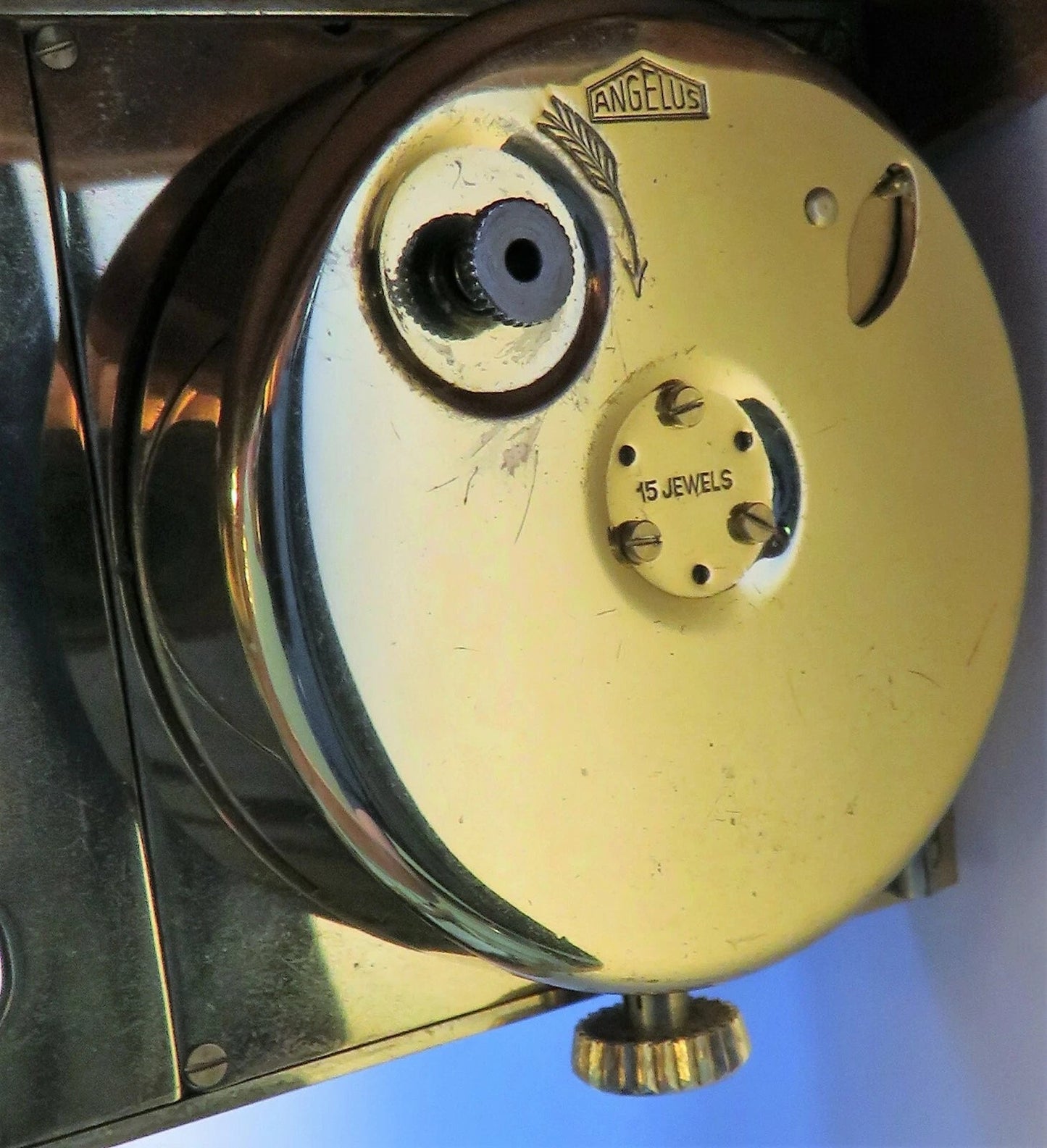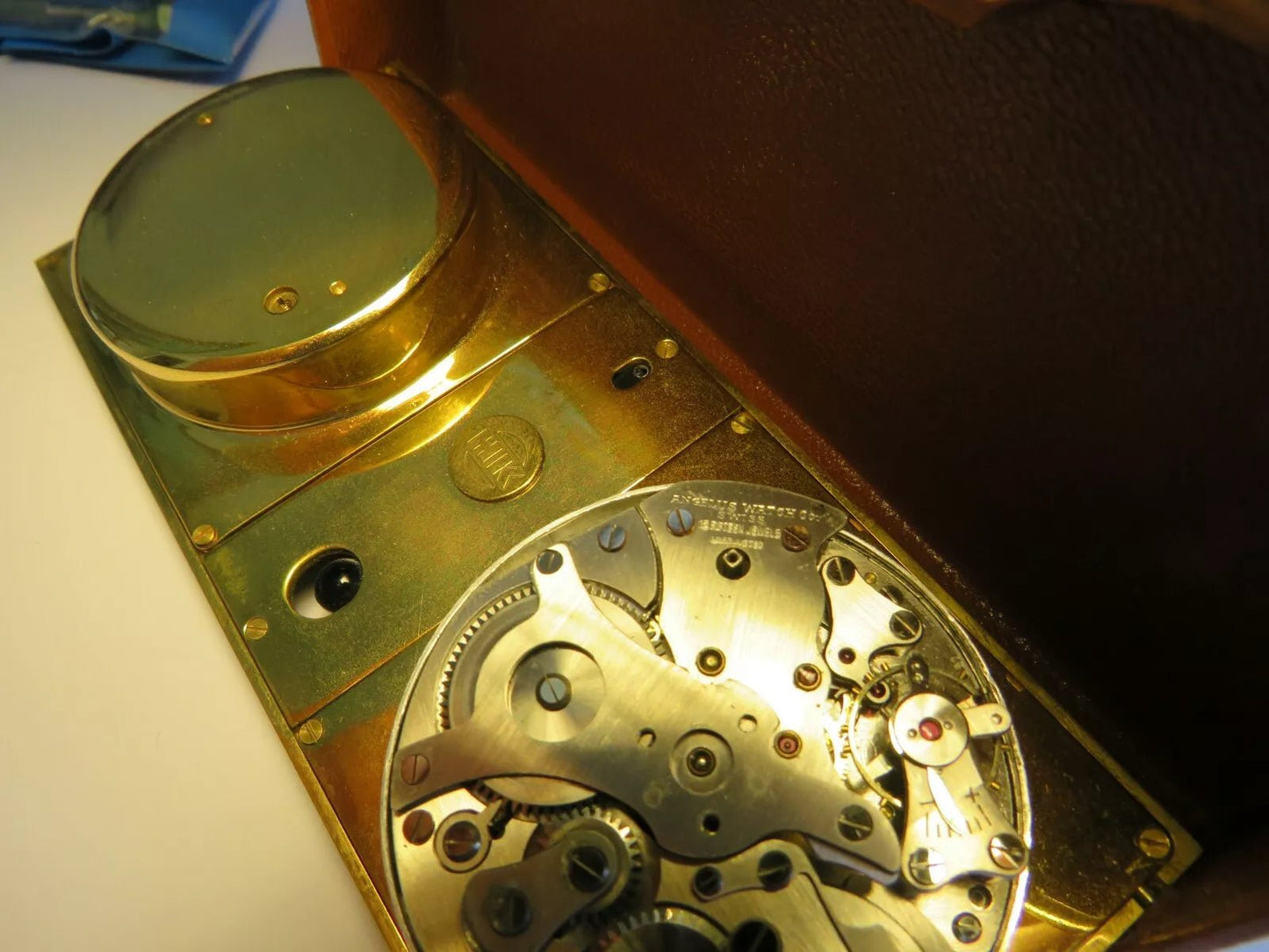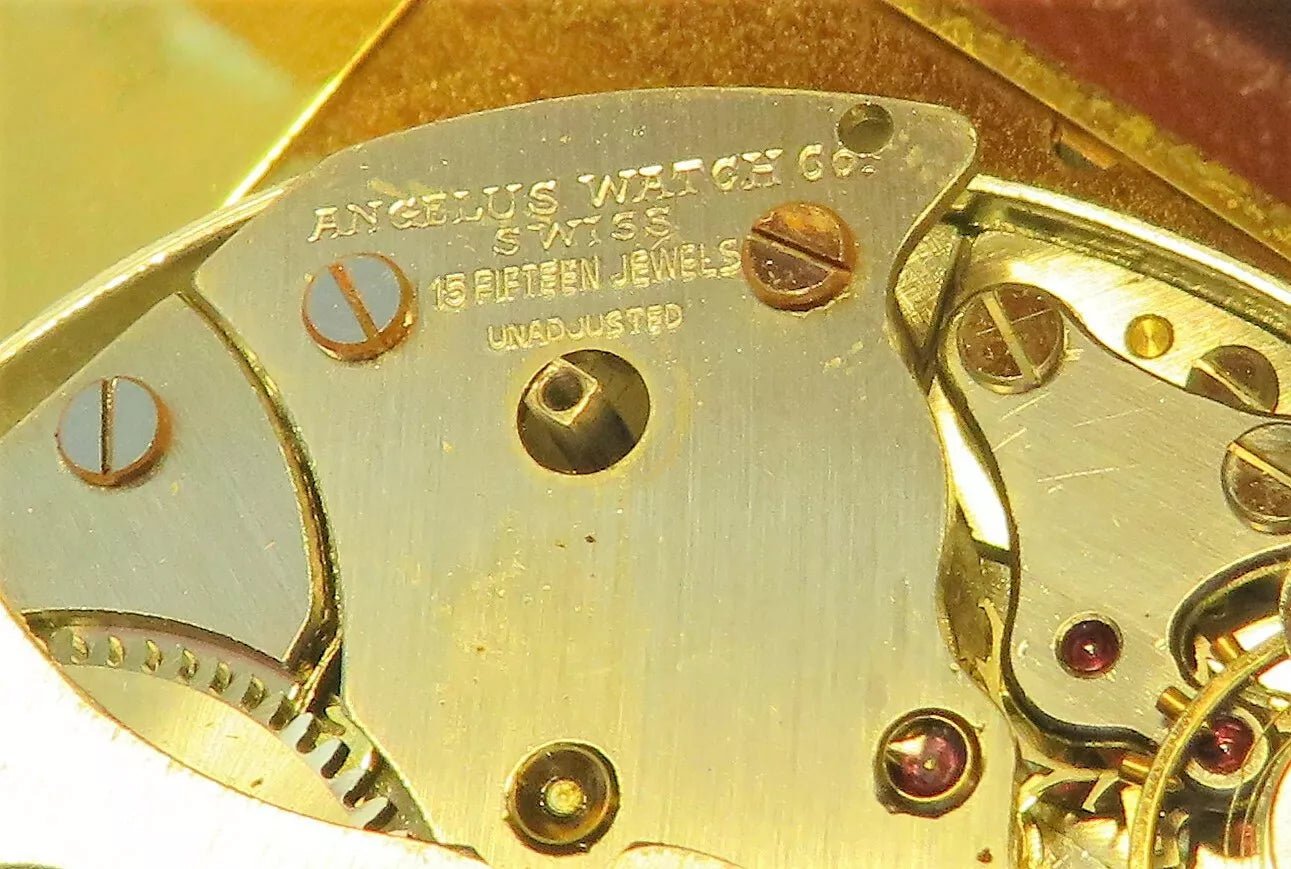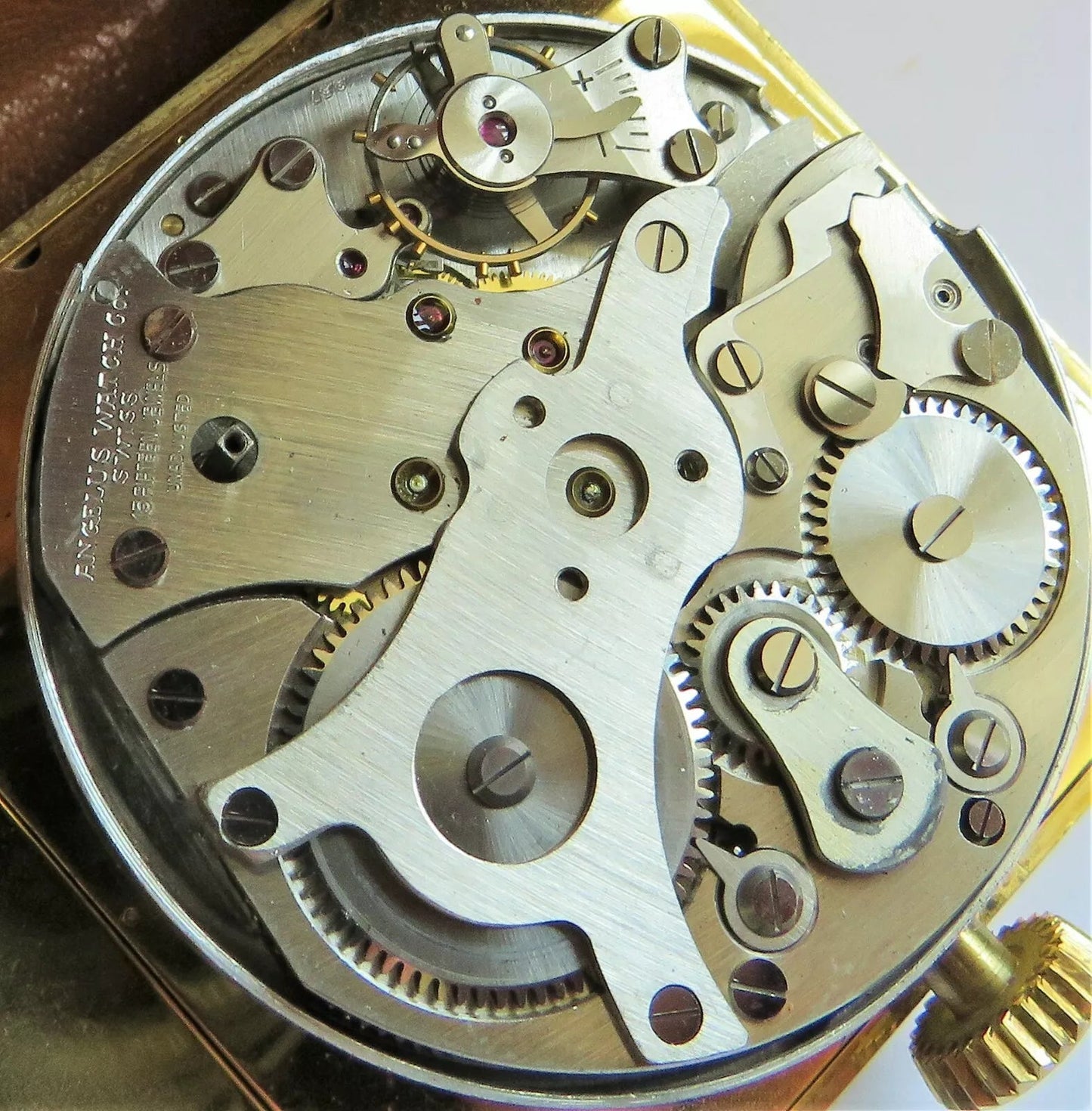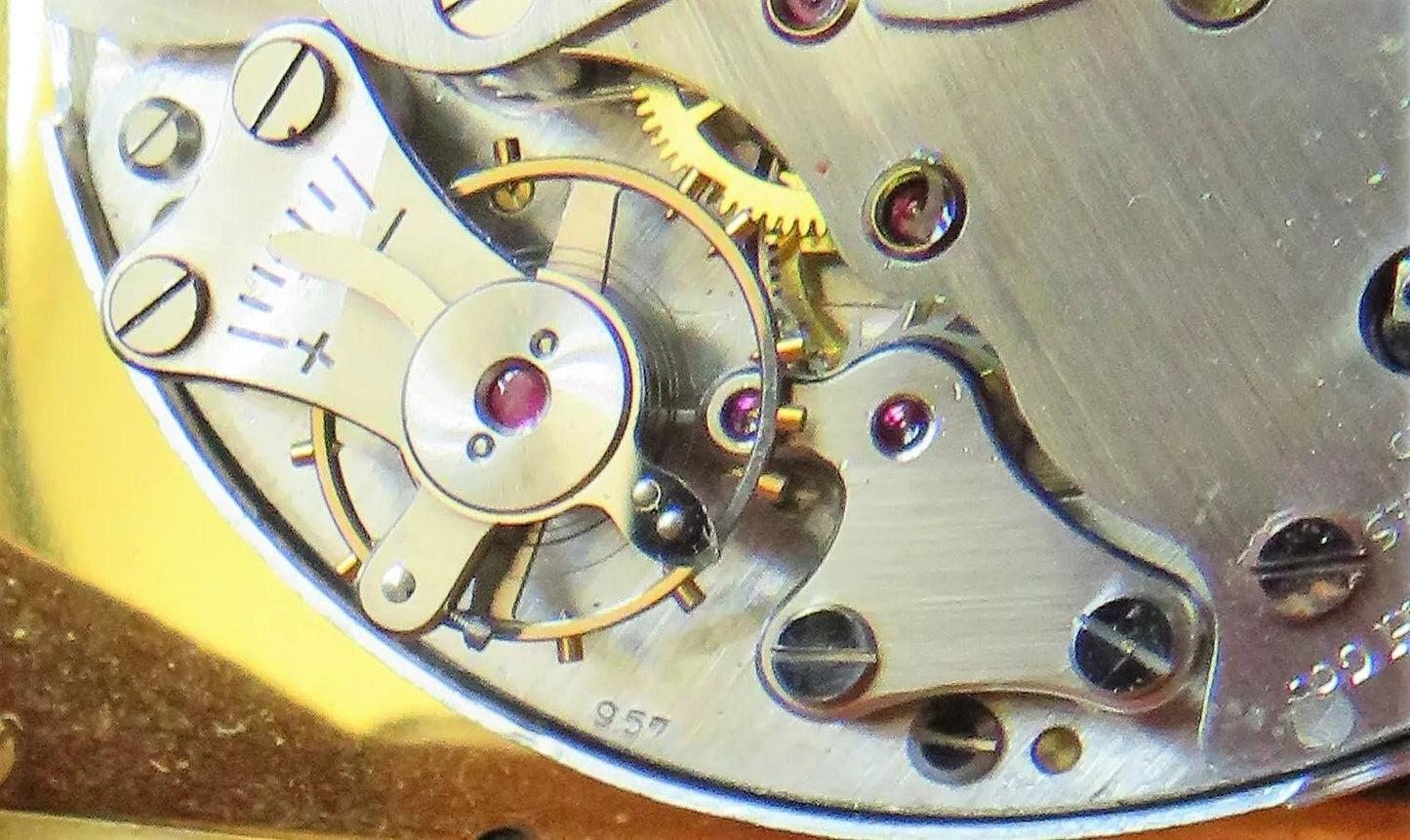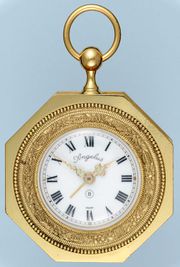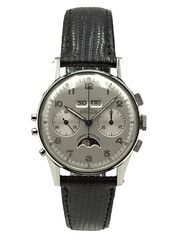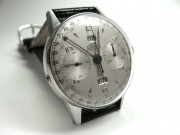Sammler-Uhren
Angelus Stolz Freres Sentry Cal 957 Weather Station Barometer Table Clock Thermometer
Angelus Stolz Freres Sentry Cal 957 Weather Station Barometer Table Clock Thermometer
Couldn't load pickup availability
Original Angelus / Stolz Freres "Sentry" table clock - weather station Cal. 957 with thermometer and barometer
High-quality and elegant in undamaged artificial leather coated stand case
Closed 14.5cm x 10cm x 3cm, opened height: 10cm
Clock / barometer and thermometer work perfectly (accuracy not tested)
EZ: 1 - 2 - slight stains are visible on the artificial leather (see photos), otherwise very good, used condition
History of the Angelus / Stolz Freres watch manufactory (source: Wikipedia):
Stolz Frères SA
Stolz Frères SA
Swiss watch manufacturer
The Stolz Frères SA manufactory was founded in 1891 in Le Locle by brothers Gustav and Albert Stolz . At the time of the company's founding, the small office was located on the upper floor of a house on Rue du Marais, later on Rue de Jardin. In 1898 , the third brother, Charles Stolz , joined the company after completing his watchmaking apprenticeship. The supplied watch components were assembled in small workshops. Initially, the focus was on pendulum clocks and case clocks . The brand name used was Angelus.
From 1912 onwards, the company increasingly specialised in more complicated watch movements with repeaters and chronographs , which were exported to Germany, Italy and Russia.
In addition, top-quality pocket watches ( repeaters , chronographs, calendars) and table clocks (alarm clocks, 8-day clocks , and carriage clocks) were manufactured. These clocks won prizes at competitions in Liège in 1905 , Milan in 1906 , and Bern in 1914 .
Later, wristwatches with calendar and/or chronograph functions were also produced.
A well-known model is the Chronodato , a chronograph with a 45-minute counter, month display below 12 o'clock, day of the week display above 6 o'clock, and a central date display using a hand. It used the Angelus 217 caliber, a column-wheel chronograph movement with a Breguet hairspring . This watch was manufactured from around 1945 onward.
The first Chronodatos were delivered under the designation "CHRONO-DATE," only later renamed "CHRONO-DATO." Stolz & Freres continued to supply movements to renowned Swiss watch manufacturers . The CHRONO-DATO was the first wrist chronograph with a full calendar to be mass-produced.
A sought-after model among collectors today is an automatic quarter -repeat wristwatch ("Tinkler"), released in 1957/1958 , which, however, failed to gain traction at the time. Only 100 of this model were produced. The base movement was the AS 1580 caliber, which could be wound in both directions.
A wristwatch with a 5-minute repeater followed in 1976. The advent of the quartz watch marked the end of the company, which was subsequently acquired by Evaco SA in Neuchâtel .
Brand names of Stolz Frères
Angelette, Angelic, Angelito, Angelo , Astroluxe, Azimut, Baroclock, Barodate, Burodate, Carillon, Chrono-Date, Chronodato, Chrono-Datoluxe, Cocobolo, Culmen, Datalarm, Dateclock, Datographic, Datoiz, Dekodate, Exotic, Foliodate, Folioluxe, Foursome, Galli, Kamadate, Manoir, Medical, Midget, Para, Para-Favor, Piccola, President, Primor, Rapier-Thin, Rectory, Tinkler, Typique, Watchlarm
Patents
- Patent CH-9124; applied for on: August 16, 1894 ; Refined mechanics of the stopwatch counter
- Patent CH-12172; applied for on: April 15, 1896 ; Silent regulator for the ringing of repeating clocks
- Patent CH-18282; applied for on: January 28, 1899 ; Refined repeating mechanism for any type of repeating striking clock
- Patent CH-95690; applied for on: April 9, 1921 ; cadrature scheme
- Patent CH-104373; applied for on: April 10, 1923 ; alarm clock
- Patent CH-203735; applied for on: March 25, 1938 ; Pointer scheme that can indicate the consecutive days of a period of several days
- Patent CH-261432; applied for on: August 13, 1947 ; diagram of a calendar function
|
|
